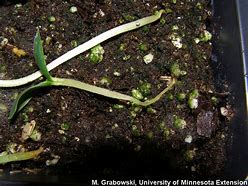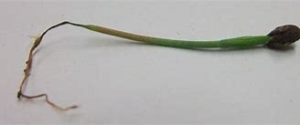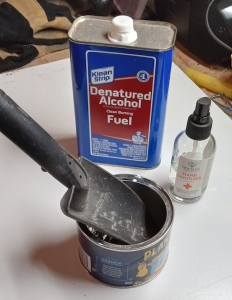The Problem


Once plants have mature leaves and a well-developed root system, they have a layer of secondary stem tissue which forms a protective barrier and limits fungal penetration. Thus they are better able to naturally resist the fungus or mold that causes damping off.
- It is further increased by poor soil drainage.
- High humidity levels, rich potting soils and planting too deeply will also encourage its growth.
Fungal spores which live in the soil are the primarily a problem in seed beds. They can be transported on garden tools and in garden soils taken into the house or greenhouse.
- Any garden tools used to plant seeds or transplant young seedlings should be sterilized.

There is no cure for plants that already have damping off. However, you can easily prevent the problem:
- When starting seeds indoors, use good organic potting soil or sterilize your own potting soil in an oven.
- Make sure your seed starter mix is light and fast-draining.
- Plant seedlings so that the soil surface is near the top of the container to ensure proper air circulation.
- Sow seeds thinly to prevent overcrowding which can lead to humid, moist conditions.
- Seedling trays that provide water from below are preferable to overhead watering.
- Never water past noon so that the soil surface and the plants are dry by evening.
- Avoid overwatering tender seedlings.
- Ensure all gardening tools as well as pots and trays that have been used previously are thoroughly clean.
There is a product called Actinovate Lawn & Garden which contains Streptomyces lydicus, a naturally occurring soil bacterium that is found in healthy soils.
When applied as a soil drench or foliar spray, it establishes itself on plants’ roots and leaves and provides protection against a wide range of root, stem and foliar diseases.
Actinovate is OMRI Listed for use in organic gardens.

